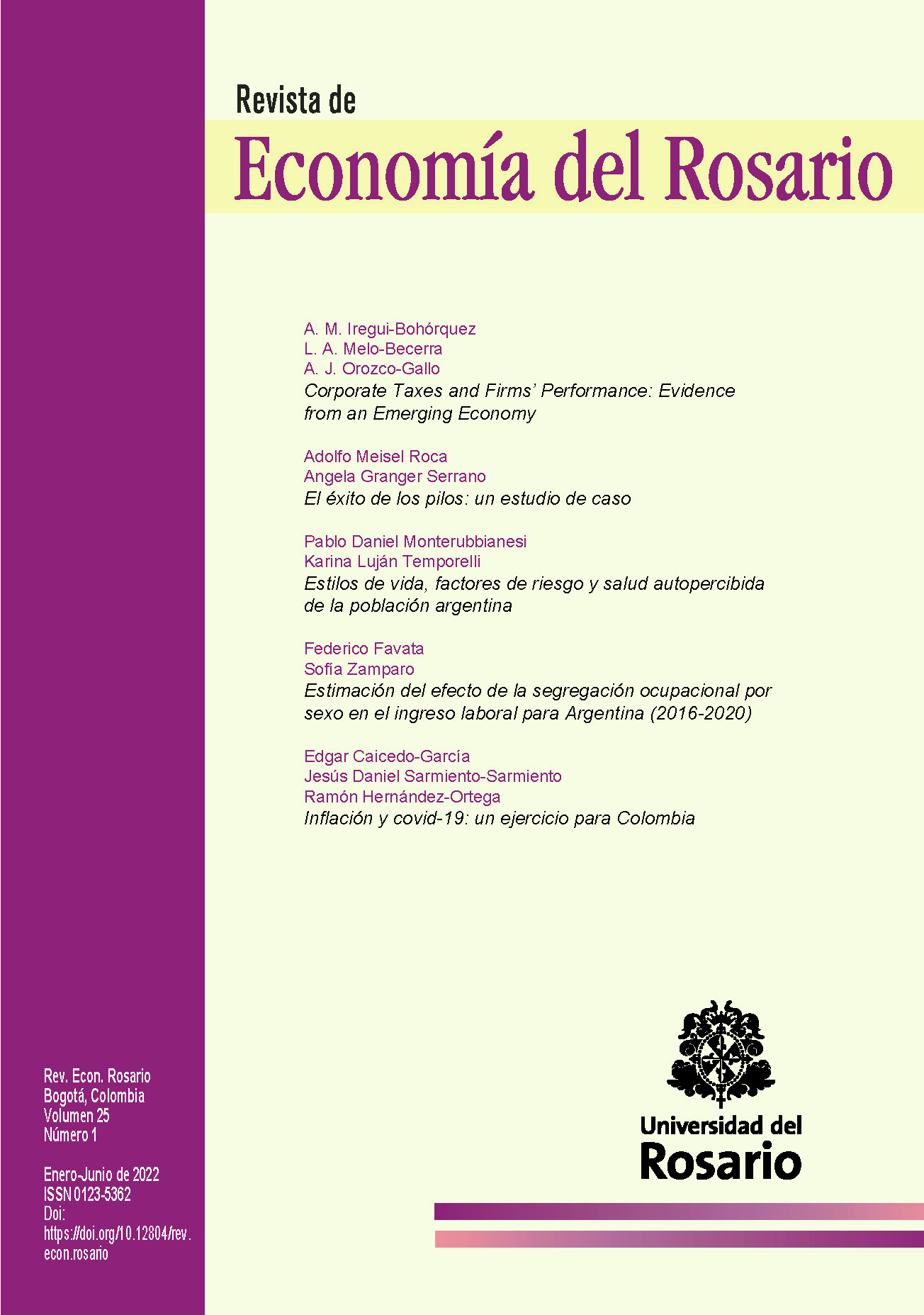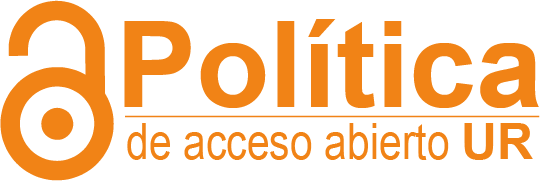El éxito de los pilos: un estudio de caso
Barra lateral del artículo
Contenido principal del artículo
Ser Pilo Paga (SPP) fue un programa innovador que permitió el ingreso de un gran número de estudiantes de bajos recursos y buen desempeño a universidades colombianas de excelencia y, en particular, a universidades privadas tradicionalmente de élite. En este documento, se examina el desempeño académico de estos estudiantes y su influencia sobre el resto de la población estudiantil en la Universidad del Norte. El trabajo empírico conto con una base de mas de 4.000 estudiantes del Programa SPP que se matricularon en esta universidad. Los resultados muestran que los estudiantes de SPP no se rezagaron respecto a sus compañeros. Además, su presencia tuvo externalidades positivas sobre el desempeño académico de los estudiantes de ingresos más altos.
Descargas
Alon, S., & Malamud, O. (2014). The impact of Israel’s class-based affirmative action policy on admission and academic outcomes. Economics of Education Review, 40, 123-139. https://doi.org/10,1016/j.econedurev.2014.02.004
Álvarez Rivadulla, M. J. (2019). “¿Los becados con los becados y los ricos con los ricos?” Interacciones entre clases sociales distintas en una universidad de élite. Desacatos, (59), 50-
http://www.scielo.org.mx/scielo.php?pid=S1607-050X2019000100050&script=sci_arttext
Álvarez Rivadulla, M. J., Castro, C., Corredor, J., Londoño Vélez, J., Maldonado Carreño, C., Rodríguez Orgales, C., Sánchez Torres, F. J., Velasco Rodríguez, T., Ángel Quintana, D. M., Ayala Guerrero, M. C., & Pulido Ramírez, X. (2017, octubre). El Programa Ser Pilo Paga: impactos iniciales en equidad en el acceso a la educación superior y el desempeño académico. Documentos CEDE, 59. http://hdl.handle.net/1992/8852
Andrews, R. J., Imberman, S. A., & Lovenheim, M. F. (2020). Recruiting and supporting low-income, high-achieving students at flagship universities. Economics of Education Review, 74, 101923. https://doi.org/10.1016/j.econedurev.2019.101923
Angrist, J., Autor, D., Hudson, S., & Pallais, A. (2014). Leveling up: Early results from a randomized evaluation of post-secondary aid (Working Paper N.° 20800). National Bureau of Economic Research. https://doi.org/10.3386/w20800
Angrist, J., Lang, D., & Oreopoulos, P. (2009). Incentives and services for college achievement: Evidence from a randomized trial. American Economic Journal: Applied Economics, 1(1), 136-163. https://doi.org/10,1257/app.1.1.136
Angrist, J. D., & Lang, K. (2004). Does school integration generate peer effects? Evidence from Boston's Metco Program. American Economic Review, 94(5), 1613-1634. https://doi.org/10.1257/0002828043052169
Avery, C., Hoxby, C., Jackson, C., Burek, K., Pope, G., & Raman, M. (2006). Cost should be no barrier: An evaluation of the first year of Harvard’s financial aid initiative (Working Paper N.° 12029). National Bureau of Economic Research. https://doi.org/10.3386/w12029
Becker, G. S. (1994). Human capital: A theoretical and empirical analysis, with special reference to education (3.ª ed.). The University of Chicago Press.
Bettinger, E., Gurantz, O., Kawano, L., Sacerdote, B., & Stevens, M. (2019). The long-run impacts of financial aid: Evidence from California’s cal grant. American Economic Journal: Economic Policy, 11(1), 64-94. https://doi.org/10.1257/pol.20170466
Bifulco, R., Fletcher, J. M., & Ross, S. L. (2011). The effect of classmate characteristics on post-secondary outcomes: Evidence from the Add Health. American Economic Journal: Economic Policy, 3(1), 25-53. https://doi.org/10.1257/pol.3.1.25
Bowen, W. G., & Bok, D. (1998). The shape of the river: Long-term consequences of considering race in college and university admissions. Princeton University Press.
Camacho, A., Messina, J., & Uribe Barrera, J. (2017). The expansion of higher education in Colombia: Bad students or bad programs? Documento CEDE, 13. https://papers.ssrn.com/sol3/papers.cfm?abstract_id=2921965
Cárdenas, M. (2020). Introducción a la economía colombiana. Alfaomega.
Carrell, S. E., Sacerdote, B., & West, J. E. (2013). From Natural Variation to Optimal Policy? The Importance of Endogenous Peer Group Formation. Econometrica, 81(3), 855-882. https://doi.org/10.3982/ecta10168
Castleman, B. L., & Long, B. T. (2013). Looking beyond enrollment: The causal effect of need-based grants on college access, persistence, and graduation. Journal of Labor Economics, 34(4), 1023-1073.
Chetty, R., Friedman, J. N., Saez, E., Turner, N., & Yagan, D. (2017). Mobility report cards: The role of colleges in intergenerational mobility (Working Paper N.° 23618). National Bureau of Economic Research. https://doi.org/10.3386/w23618
Deming, D., & Dynarski, S. (2009). Into college, out of poverty: Policies to increase the poor (Working Paper N.° 15387). National Bureau of Economic Research. https://papers.ssrn.com/sol3/papers.cfm?abstract_id=1478805
Departamento Nacional de Planeación. (2016). Evaluación de impacto de corto plazo del programa Ser Pilo Paga. https://sinergia.dnp.gov.co/Paginas/Noticias/Ser_Pilo_si_paga.aspx
Dynarski, S. (2000). Hope for whom? Financial aid for the middle class and its impact on college attendance. National Tax Journal, 53(3), 629-661. https://doi.org/10.17310/ntj.2000.3S.02
Espenshade, T. J., & Radford, A. W. (2013). No longer separate, not yet equal: Race and class in elite college admission and campus life. Princeton University Press.
Fack, G., & Grenet, J. (2015). Improving college access and success for low-income students: Evidence from a large need-based grant program. American Economic Journal: Applied Economics, 7(2), 1-34. https://doi.org/10.1257/app.20130423
Hoxby, C. M., & Avery, C. (2013). Low-income high-achieving students miss out on attending selective colleges. Brookings Papers on Economic Activity. https://www.hks.harvard.edu/publications/low-income-high-achieving-students-miss-out-attending-selective-colleges
Hoxby, C. M., & Weingarth, G. (2005). Taking race out of the equation: School reassignment and the structure of peer effects (Working Paper N.° 7867). http://citeseerx.ist.psu.edu/viewdoc/download?doi=10.1.1.472.2561&rep=rep1&type=pdf
Instituto Colombiano para la Evaluación de la Educación, Icfes. (2020). Acceso a bases de datos y diccionarios. Instituto Colombiano para la Evaluación de la Educación. https://www.icfes.gov.co/investigadores-y-estudiantes-posgrado/acceso-a- bases-de-datos
Londoño-Vélez, J. (2020). Diversity and redistributive preferences: Evidence from a quasi- experiment in Colombia. Social Science Research Network. https://papers.ssrn.com/sol3/papers.cfm?abstract_id=2865932
Londoño-Vélez, J., Rodríguez, C., & Sánchez, F. (2020). Upstream and downstream impacts of college merit-based financial aid for low-income students: Ser Pilo Paga in Colombia. American Economic Journal: Economic Policy, 12(2), 193-227. https://doi.org/10.1257/pol.20180131
Melguizo, T., Sánchez, F., & Velasco, T. (2016). Credit for low-income students and access to and academic performance in higher education in Colombia: A regression discontinuity approach. World Development, 80, 61-77. https://doi.org/10.1016/j.worlddev.2015.11.018
Rao, G. (2019). Familiarity Does Not Breed Contempt: Generosity, Discrimination and Diversity in Delhi Schools. American Economic Review, 109(3), 774-809. https://doi.org/10.1257/aer.20180044
Sander, R. H. (2004). A systemic analysis of affirmative action in American law schools. Stanford Law Review, 57(2), 367-483. https://heinonline.org/HOL/LandingPage?handle=hein.journals/stflr57&div=16&id=&page=
Universidad del Norte. (2020). Sistema de información BiBa [Bases de datos]. Universidad del Norte.
Detalles del artículo

Esta obra está bajo una licencia internacional Creative Commons Atribución-NoComercial-SinDerivadas 4.0.
Los autores conservan los derechos de autor y garantizan a la revista el derecho de ser la primera publicación del trabajo al igual que licenciado bajo una Creative Commons Attribution License que permite a otros compartir el trabajo con un reconocimiento de la autoría del trabajo y la publicación inicial en esta revista.


